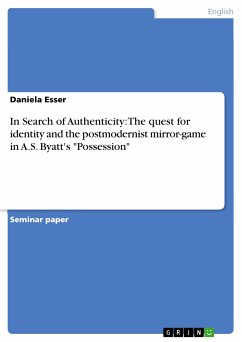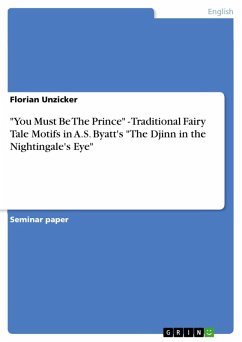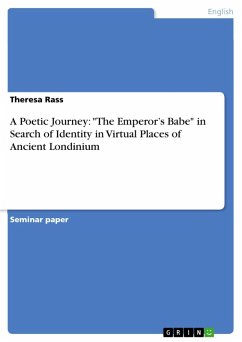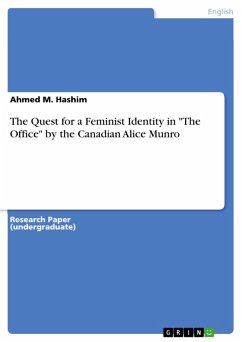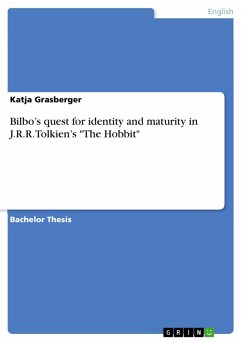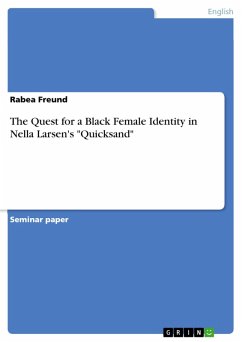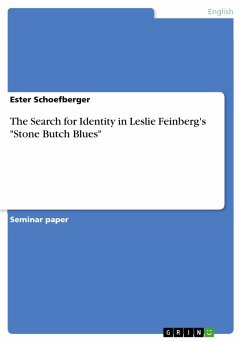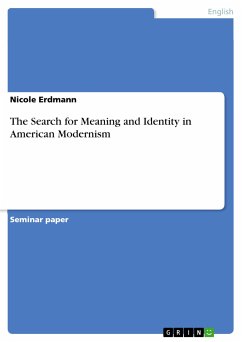Seminar paper from the year 2001 in the subject English Language and Literature Studies - Literature, grade: very good, University of Paderborn (Anglistics), course: Proseminar: Biofictions, language: English, abstract: "Post-modernist fiction often presents us with a pastiche of genres and styles."3 This is especially true with regard to A. S. Byatt's Possession. A Romance4. In her metafictional novel, Byatt connects a bygone time with the present, interweaving a personal quest for identity with a literary search and patterns of romance, and thus providing the reader with letters, diary extracts and poems that interrupt the outer narrative. The novel reflects upon the question of how lives can be recapitulated and represented, but it also focuses on the difficulty of remaining objective versus certain topics or persons. Furthermore, it also conveys the postmodern idea of the scattered self. The novel ponders over the question if someone can really seize another person, especially when there is a distance of more than a hundred years to overcome. Considering knowledge, for instance, about a bygone time, we have to admit that this knowledge is always based on second-hand information. Thus any information we obtain is an imparted truth unless we experience it ourselves. In Possession, the author juxtaposes the Victorian age with the post-freudian time, as the two young literary scholars Roland Michell and Maud Bailey unexpectedly become figures of romance when they discover a surprising link between the two poets on whom they are authorities, namely Randolph Henry Ash and Christabel LaMotte. The chase for bits of information regarding the Victorian poets' lives and the unfolding story of a secret love-affair between them triggers the development of a romantic relationship between the two scholars. Thus, Byatt connects the two time-levels by implicating the academics in a postmodernist mirror-game. Byatt's interruptions of the narrative, confronting the reader with some narrative situations and a postscript taking place in the (dead) past, provide the stimulus of a living past. Containing poems as well as letters and journals from the past, Possession is a richly layered patchwork connecting the bygone Victorian age with the present. The patchwork also allows Byatt to play with literary genres such as fairy-tale, romantic quest, myth and detective story. [...] _____ 3 Giobbi, Giuliana: "Know the past: know thyself. Literary pursuits and quest for identity in A. S. Byatt's Possession and in F. Duranti's Effetti Personali." Journal of European Studies 24:1 (93): March 1994, p. 41. 4 Byatt, A.S.: Possession. London: Vintage Books, 1991. Hereafter cited as Byatt: Possession.
Dieser Download kann aus rechtlichen Gründen nur mit Rechnungsadresse in A, B, BG, CY, CZ, D, DK, EW, E, FIN, F, GR, HR, H, IRL, I, LT, L, LR, M, NL, PL, P, R, S, SLO, SK ausgeliefert werden.

